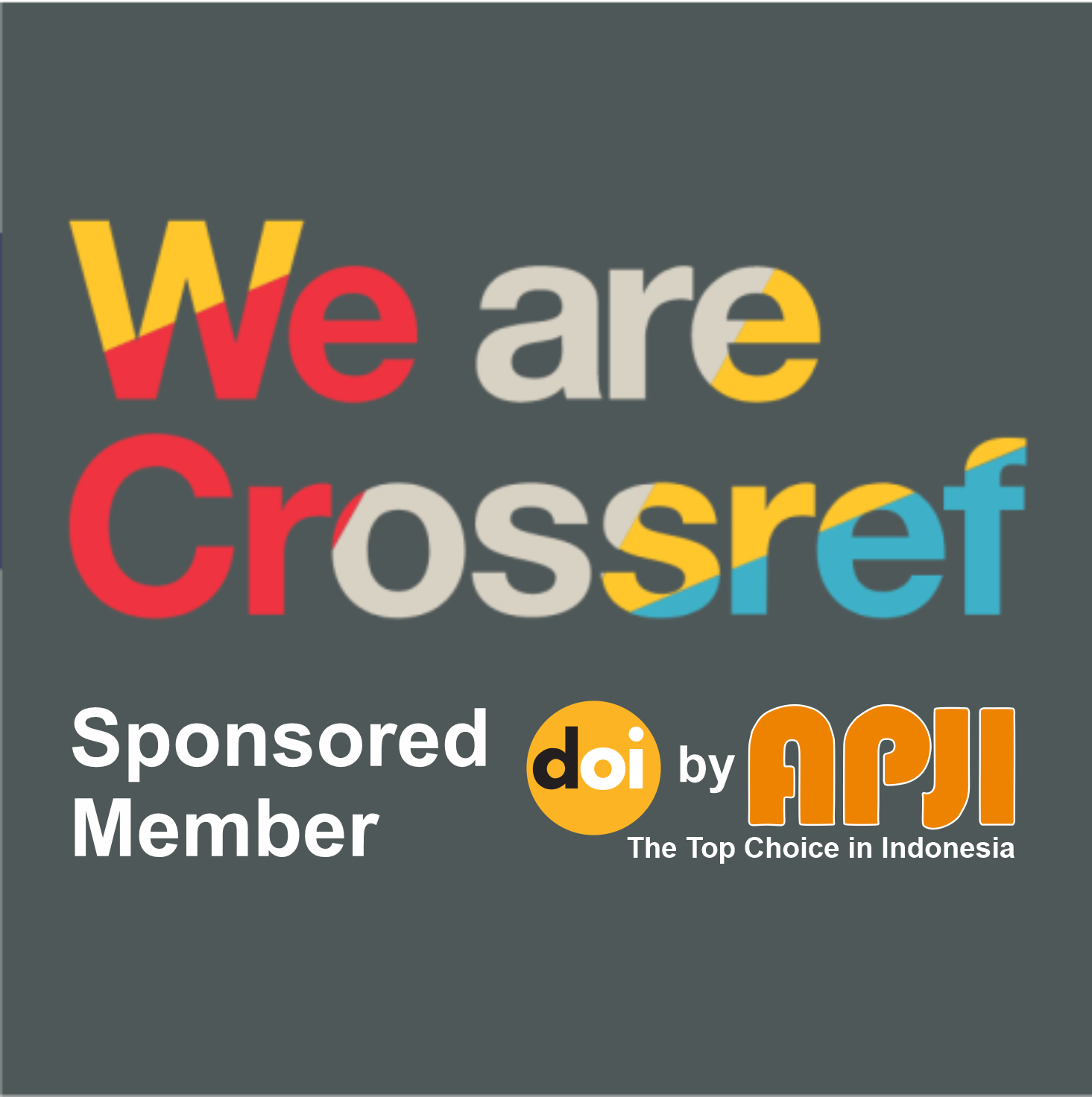Digital Interpretation: An Analytical Study of the Use of Artificial Intelligence in the Interpretation of the Qur'an
Keywords:
Al-Qur'an, Artificial Intelligence, Digital TafsirAbstract
The rapid integration of digital technology into Islamic scholarship has given rise to new forms of Qur’anic interpretation that challenge traditional hermeneutical boundaries. This study addresses the critical problem of how artificial intelligence (AI) is utilized in digital tafsir applications and what implications it holds for the continuity of classical exegesis. The research aims to describe the forms and mechanisms of AI-based Qur’anic interpretation, analyze its potential, advantages, and limitations, examine its epistemological and methodological implications, and provide a critical perspective on its position within contemporary tafsir studies. Employing a qualitative explorative approach, this research uses a literature-based methodology supported by technological sources and content analysis of AI-driven tafsir platforms. The data consist of selected scholarly works on digital tafsir, theoretical studies on AI, and textual materials from Qur’anic interpretation applications enhanced by AI. The findings indicate that AI enables structured, accessible, and dynamic interpretive outputs while simultaneously raising challenges regarding authenticity, contextual depth, and the preservation of interpretive authority. Surprisingly, the study reveals that AI not only functions as a supportive tool but also emerges as an epistemic actor that reshapes the interpretive landscape. This research contributes theoretically by broadening the discourse on tafsir in the digital era and practically by offering insights for scholars, educators, and developers of tafsir platforms. While the study is limited to conceptual and textual analyses, it opens pathways for further empirical research on user reception and ethical frameworks in AI-driven Qur’anic interpretation
References
Abidi, M. R., Hasanah, D. M., & Fuadi, Z. M. (2025). INOVASI TEKNOLOGI DALAM PENDIDIKAN ISLAM. PT Arr Rad Pratama. https://books.google.co.id/books?id=alNzEQAAQBAJ
Bisri, K. (2025). Tafsir & Hadis Pendidikan: Sebuah Pendekatan Interdisipliner (Vol. 1–1). Penerbit Lawwana. https://books.google.co.id/books?id=s1xnEQAAQBAJ
Dahnial, I. (2024). Modernisasi Pendidikan pada Era Artificial Intelligence. umsu press. https://books.google.co.id/books?id=uAEjEQAAQBAJ
Fitriono, E. N. (2025). Epistemologi ‘Ulum al-Qur’an: Kajian Historis atas Dinamika Penafsiran di Dunia Islam. AL-MIKRAJ Jurnal Studi Islam dan Humaniora (E-ISSN 2745-4584), 5(2), 64–83. https://doi.org/10.37680/almikraj.v5i2.6730
Hamid, A. (2022). Pengantar Studi Al-qur’an. Prenada Media. https://books.google.co.id/books?id=0VW6EAAAQBAJ
Ista, A. A., & Ista, A. (2024). Revolusi Digital Dalam Kajian Al-Qur’an: Mewujudkan Sinergi Untuk Kemajuan Umat. J-CEKI: Jurnal Cendekia Ilmiah, 4(1), 1326–1337. https://doi.org/10.56799/jceki.v4i1.6196
Isti’ana, A. (2024). Integrasi teknologi dalam pembelajaran pendidikan Islam. Indonesian Research Journal on Education, 4(1), 302–310. https://doi.org/10.31004/irje.v4i1.493
Jafar, A. R., Pertiwi, H., Jumanah, J., Lestaluhu, R., Arianto, T., Hasni, K., Shabah, M. A. A., Saini, S., Leleang, A. T., & Nugroho, R. S. (2025). Hukum Islam dan Dinamika Sosial: Perspektif Kontemporer. CV. Gita Lentera. https://books.google.co.id/books?id=gLdKEQAAQBAJ
Kushariyadi, K., Apriyanto, H., Herdiana, Y., Asy’ari, F. H., Judijanto, L., Pasrun, Y. P., Mardikawati, B., Agusdi, Y., & Dihniah, N. (2024). Artificial Intelligence: Dinamika Perkembangan AI Beserta Penerapannya (Vol. 1–1). PT. Sonpedia Publishing Indonesia. https://books.google.co.id/books?id=1g0nEQAAQBAJ
Mahendra, G. S., Ohyver, D. A., Umar, N., Judijanto, L., Abadi, A., Harto, B., Anggara, I. G. A. S., Ardiansyah, A., Saktisyahputra, S., Setiawan, I. K., & others. (2024). Tren Teknologi AI : Pengantar, Teori, dan Contoh Penerapan Artificial Intelligence di Berbagai Bidang. PT. Sonpedia Publishing Indonesia. https://books.google.co.id/books?id=qBsFEQAAQBAJ
Mauluddin, M. (2024). Kontribusi Artificial Intelligence (AI) pada Studi Al Quran di Era Digital; Peluang dan Tantangan. Madinah: Jurnal Studi Islam, 11(1), 99–113. https://doi.org/10.58518/madinah.v11i1.2518
Nurhidayati, S., Rosada, M., Lubis, M., & Sidik, A. (2025). ANALISIS EPISTEMOLOGIS TERHADAP KRITERIA MUFASSIR: TELAAH ATAS SUMBER, METODE DAN VALIDITAS ILMU DALAM PERSPEKTIF USHUL AL-TAFSIR. AT-TAISIR: Journal of Indonesian Tafsir Studies, 6(1), 129–145. https://doi.org/10.51875/attaisir.v6i1.628
Putra, D. J. (2024). Revolusi Digital dalam Studi Al-Qur’an: Menggali Wawasan Baru dengan Artificial Intelligence (AI). Manarul Qur’an: Jurnal Ilmiah Studi Islam, 24(2), 68–92. https://doi.org/10.32699/mq.v25i2.8001
Ramadhan, A. F., & Kurniawan, H. (2025). Diskursus Al-kitab dan Al-Qur’an sebagai Wahyu Ilahi dalam Konteks Penafsiran Al Qur’an. Journal of Multidisciplinary Inquiry in Science, Technology and Educational Research, 2(2), 2943–2957. https://doi.org/10.32672/mister.v2i2.3060
Rifky, S., Kharisma, L. P. I., Afendi, H. A. R., zulfa, I., Napitupulu, S., Ulina, M., Lestari, W. S., Maysanjaya, I. M. D., Kelvin, K., Sinaga, F. M., & others. (2024a). Artificial Intelligence: Teori dan Penerapan AI di Berbagai Bidang. PT. Sonpedia Publishing Indonesia. https://books.google.co.id/books?id=r8YMEQAAQBAJ
Rifky, S., Kharisma, L. P. I., Afendi, H. A. R., zulfa, I., Napitupulu, S., Ulina, M., Lestari, W. S., Maysanjaya, I. M. D., Kelvin, K., Sinaga, F. M., & others. (2024b). Artificial Intelligence: Teori dan Penerapan AI di Berbagai Bidang. PT. Sonpedia Publishing Indonesia. https://books.google.co.id/books?id=r8YMEQAAQBAJ
Sari, D. W., Putri, M. S., & Nurlaili, N. (2023). Relevansi Pendidikan Islam Di Era Digital Dalam Menavigasi Tantangan Modern. Science and Education Journal (SICEDU), 2(2), 372–380. https://doi.org/10.31004/sicedu.v2i2.129
Toyyib, M., Syahid, I., Aziz, A., & Afandi, A. (2025). Hermeneutical Dynamics in Islamic Exegesis: Al-Thabari and the Integration of Riwayah and Linguistic Rationalism. Journal of Islamic Thought and Philosophy, 4(1), 144–160. https://doi.org/10.15642/jitp.2025.4.1.144-160
Widjaja, M. P. A. (2022a). Artificial Intelligence: Perspektif Manajemen Strategis. Kepustakaan Populer Gramedia. https://books.google.co.id/books?id=KzFfEAAAQBAJ
Widjaja, M. P. A. (2022b). Artificial Intelligence: Perspektif Manajemen Strategis. Kepustakaan Populer Gramedia. https://books.google.co.id/books?id=KzFfEAAAQBAJ
Wildan, W. (2025). Dari Manuskrip ke Digital: Transformasi Studi Tafsir di Era Digital (Studi Analisis Website Altafsir. Com). El-Wasathy: Journal of Islamic Studies, 3(1), 99–113. https://doi.org/10.61693/elwasathy.vol31.2025.99-113
Zakiyyah, I. (2024). Manajemen Penggunaan Teknologi Digital dalam Pembelajaran Agama. Penerbit NEM. https://books.google.co.id/books?id=348gEQAAQBAJ
Downloads
Published
Issue
Section
License
Copyright (c) 2025 Fatikhatur Rohmah (Author)

This work is licensed under a Creative Commons Attribution-ShareAlike 4.0 International License.














